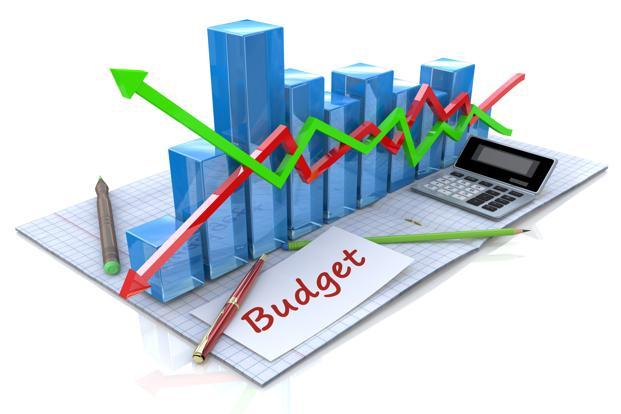In an increasingly complex pecuniary landscape, the judicious management of one’s fiscal resources is not merely a suggestion but an absolute exigency. The perennial question, “Why should you manage your budgeting?” transcends a simplistic query about financial well-being; it delves into the very bedrock of economic resilience, individual autonomy, and the pursuit of long-term aspirations. To dismiss budgeting as a mundane chore is to overlook its transformative potential – a potent instrument for navigating the labyrinthine corridors of modern finance and cultivating a life of purpose and equanimity.

Unveiling the Esoteric Benefits of Budgeting
Beyond the obvious advantage of knowing where your lucre dissipates, budgeting unfurls a panoply of less apparent, yet equally profound, benefits. It serves as a veritable thermostatic control for your financial health, ensuring that you remain within a fiscally sustainable ambit. This deliberate orchestration of income and expenditure mitigates the capricious whims of unforeseen eventualities, fostering a sense of prepared alacrity rather than reactive consternation.
The Architecture of Financial Acuity
Budgeting compels a rigorous introspection into one’s spending habits. It is a meticulous archaeological dig into the strata of your financial history, unearthing patterns of profligacy and prudence. This granular understanding is the cornerstone of financial acuity. Without this detailed cartography of your cash flow, you are effectively navigating a treacherous sea without a compass, susceptible to the vagaries of economic turbulence. By meticulously categorizing outlays – from quotidian sundries to substantial capital expenditures – individuals gain an unparalleled vista into their pecuniary peregrinations. This granular analysis often reveals unsuspected fiscal bleed points, areas where resources are inadvertently siphoned away, hindering the accumulation of wealth and the realization of financial objectives.
Cultivating a Discipline of Deferred Gratification
One of the most profound, albeit challenging, dividends of budgeting is its inherent capacity to cultivate a discipline of deferred gratification. In a consumerist society that perpetually champions immediate acquisition, the ability to postpone present pleasures for future gains is an invaluable virtue. Budgeting intrinsically fosters this mindset by delineating clear financial goals – be it a down payment on a domicile, a remunerative investment, or an enriching sojourn. This deliberate prioritization instills a cognitive shift, transforming impulsive spending into purposeful allocation. The satisfaction derived from achieving a long-term financial objective far eclipses the ephemeral thrill of an impulsive purchase.
Safeguarding Against Financial Precarity
The absence of a meticulously crafted budget is tantamount to sailing into a tempestuous squall without a compass or a lifeline. It renders individuals exceptionally susceptible to the capricious vagaries of economic downturns, unexpected exigencies, and the insidious creep of indebtedness.
The Bulwark Against Debt Accumulation
One of the most pernicious manifestations of unmanaged finances is the insidious accumulation of debt. Credit card liabilities, personal loans, and other forms of consumer credit, while offering immediate gratification, can swiftly morph into an oppressive leviathan, strangling financial freedom. Budgeting acts as a formidable bulwark against this encroaching precarity. By meticulously tracking income and outgoings, individuals can preemptively identify potential shortfalls and adjust spending patterns to avoid recourse to high-interest credit facilities. This proactive approach not only averts the debilitating cycle of debt but also liberates a significant portion of future income from the onerous burden of interest payments. The financial agility afforded by a debt-free existence is a considerable boon, empowering individuals to seize opportunities and navigate economic fluctuations with greater aplomb.
Fostering Emergency Preparedness
Life, in its inexorable unfolding, invariably presents unforeseen challenges. A sudden medical exigency, an unanticipated automotive repair, or a period of unemployment can quickly decimate an unbudgeted financial landscape. A robust budget, however, incorporates a dedicated allocation for an emergency fund – a liquid reservoir of capital specifically earmarked for such contingencies. This financial prophylactic provides a crucial safety net, obviating the need to incur debt or liquidate long-term investments during times of duress. The psychological solace derived from knowing that a financial safety net exists is immeasurable, fostering a sense of security and mitigating the corrosive effects of financial stress.
In summation, the meticulous art of budgeting transcends mere numerical allocation; it is a profound exercise in self-governance, a testament to foresight, and a cornerstone of enduring financial prosperity. It empowers individuals to transcend the ephemeral allure of immediate gratification, cultivate a robust fiscal architecture, and navigate the intricate currents of economic reality with confidence and strategic acumen. To embrace budgeting is to embark upon a deliberate journey towards financial empowerment, a journey that culminates in a life punctuated by security, opportunity, and the profound satisfaction of pecuniary mastery.